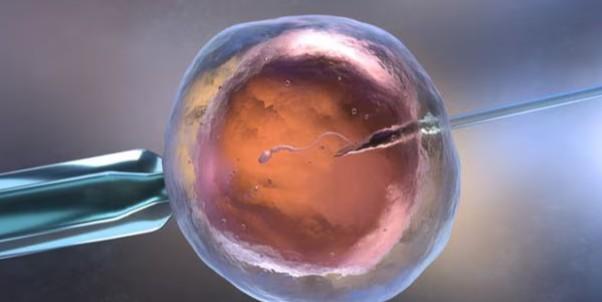
World’s First Baby Born Using AI-Assisted IVF System
The field of in vitro fertilization (IVF) has taken a significant leap forward with the birth of the world’s first baby born using an automated IVF system assisted by artificial intelligence (AI). This groundbreaking technology has the potential to revolutionize the way IVF procedures are carried out, making the process more efficient, accurate, and accessible to a wider range of individuals.
The breakthrough was achieved through the use of an automated IVF system, which is capable of carrying out 23 steps of the intracytoplasmic sperm injection (ICSI) procedure without human hands, either through AI or remote digital control. ICSI is a method used in IVF where a single sperm is injected directly into an egg.
The ICSI procedure is a crucial step in the IVF process, as it involves the gentle injection of a single sperm into the egg to achieve fertilization. Traditionally, this process is carried out by a skilled embryologist, who uses a microscope to carefully inject the sperm into the egg. However, this process can be time-consuming, labor-intensive, and prone to human error.
The new AI-assisted IVF system, on the other hand, uses advanced computer vision and machine learning algorithms to automate the ICSI procedure. The system is equipped with a high-resolution camera that captures images of the egg and sperm, allowing the AI to precisely identify and track the sperm and egg. The AI then uses this information to control the injection process, ensuring that the sperm is injected into the egg with precision and accuracy.
The first baby born using this technology was a healthy baby boy, who was born to a 35-year-old woman in China. The mother had been undergoing IVF treatment for several months, and the AI-assisted system was used to fertilize her eggs. The baby boy was born after a successful embryo transfer, and both the mother and baby are reportedly doing well.
The development of this AI-assisted IVF system is a significant milestone in the field of reproductive medicine. IVF has been a game-changer for many individuals and couples struggling with infertility, but the process can be lengthy, expensive, and emotionally challenging. The use of AI technology has the potential to streamline the IVF process, making it more efficient and accessible to a wider range of individuals.
The benefits of AI-assisted IVF are numerous. For one, the system can carry out the ICSI procedure with greater speed and accuracy than human embryologists. This reduces the risk of human error, which can be a significant factor in the success of IVF treatment. Additionally, the system can work continuously, without breaks or fatigue, allowing for more efficient use of laboratory resources.
The AI-assisted IVF system also has the potential to improve the success rates of IVF treatment. By automating the ICSI procedure, the system can reduce the risk of errors and increase the chances of successful fertilization. This can lead to higher pregnancy rates and improved outcomes for patients.
Furthermore, the use of AI technology in IVF can help to reduce the cost of treatment. IVF is a expensive and time-consuming process, and the use of AI technology can help to streamline the process and reduce the need for human labor. This can make IVF treatment more accessible to a wider range of individuals, particularly those in low- and middle-income countries where access to IVF treatment is limited.
While the development of AI-assisted IVF is a significant breakthrough, it is essential to note that the technology is still in its early stages. More research is needed to ensure the safety and efficacy of the system, and to address any potential ethical concerns. Additionally, the system will require further refinement and validation before it can be widely adopted.
In conclusion, the birth of the world’s first baby born using an AI-assisted IVF system is a significant milestone in the field of reproductive medicine. This technology has the potential to revolutionize the way IVF procedures are carried out, making the process more efficient, accurate, and accessible to a wider range of individuals. As the technology continues to evolve, we can expect to see even more exciting developments in the field of IVF, and potentially even more breakthroughs in the treatment of infertility.
Source: https://www.rbmojournal.com/article/S1472-6483(25)00150-6/fulltext






